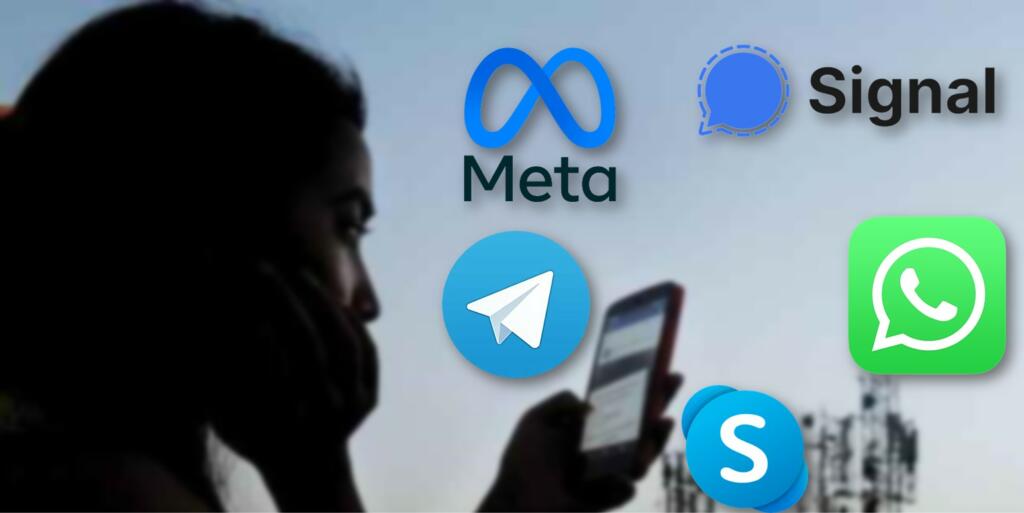The major big technology players are commonly abbreviated as MAANG. It includes Meta, Apple, Amazon, Netflix and Google (Alphabet Inc). These big tech players have consolidated a hegemony over their domain. These audacious big tech giants arm-twist elected governments, bypass the laws of the land and push their biased agendas and ill-market practices.
These have raised challenges for national security as well as free and competitive open market practices. This has led to widespread demand to regulate them not just in India but countries like France and Australia. Well, the Modi government seems to have found the panacea for this increasing challenge posed by this MAANG group.
Bringing OTT communication players into the ambit of Telcos
The Modi government has been relentlessly pushing its flagship programme – Digital India for the exponential growth of the nation. For this, it has been liberalising the telecom sector and making drastic changes to reform the sector to make it more competitive and consumer friendly. While at the same time, it has been making sure to prioritise the interest of the nation and telecom consumers.
Evidently, the Modi government allowed 100% FDI in the sector to invite new players and capital infusion to make the sector more competitive. It also deregulated Business Process Outsourcing (BPOs) and call centres.
Also Read: Say no to TrueCaller, TRAI is coming up with its KYC enabled service
It also allowed telecom operators to do deferred payments of their dues to prevent financial strain on them and allow them to expand or invest in new technology and research areas.
Indian Telecommunication Bill
Now with a new proposed draft bill, it is making sure to maintain a balance and curb any unfair advantages to any player of the sector over their competitors. Recently, the Department of Telecom (DoT) released the draft Indian Telecommunication Bill, 2022. It aims to reform existing telecom laws and regulations while making it ‘future ready’.
With the draft proposal, the DoT will regulate over-the-top (OTT) players that provide communication services. It includes players like WhatsApp, Signal, Google Meet, Facetime and Telegram. Reportedly, the draft doesn’t include players that offer content and e-commerce services.
The department officials informed that with the rampant surge in voice calls, it was necessary to regulate OTT communication players as it gave them an unfair advantage over telecom players and other challenges to national security and financial fraud.
As per a senior Department of Telecommunications (DoT) official, these OTT communication players account for 60-70% of total voice calls. However, the officials stated that it is difficult to quantify voice calls in percentages as it happens through data sessions, which can be measured in bytes, not minutes. This makes it hard to track in case of consumer protection or national security.
Surge in Voice calls poses challenges
The surge in data consumption highlights the increasing challenges in untraced and untraceable voice calls. The 4G services have catalysed this surge in data consumption. An average Jio subscriber consumed 20.8 GB per month in April-June while Bharti Airtel consumers stood at 19.9 GB and Vodafone Idea at 14.6 GB. But in contrast to that, average subscriber consumption stood at around 1 GB per month in 2017-18.
Also Read: Modi government must come down heavily on Truecaller, the biggest data thief in India
With the regulation and bringing OTT communication players into the ambit of telecom laws, the government is making sure that all platforms that allow voice communications and messaging follow certain safeguards regarding consumer protection and national security.
Impact of the change
The stark contrast is visible from the fact that Telecom operators are required to store call details records (CDR) for at least one year. However, there was no such requirement for OTT calls that needed to be changed to ensure consumer protection and national security.
The Cabinet proposal aims to frame a mechanism whereby the licence conditions for OTT communication players will include local storage of data for a certain period. Plus, such OTT platforms need to provide user authentication with the help of the know-your-customer (KYC) process.
These draft provisions will permit law enforcement agencies to monitor illegal activities taking place through OTT platforms. As per government officials, most online financial scams happen through OTT calls but it was impossible to apprehend the perpetrators due to untraceability and non-ability of data.
With OTT voice calls being regulated, platforms like WhatsApp would need to store data in India and do KYC along the lines of telcos.
Telecom operators have lauded this recommendation. They advocate the principle of ‘same service, same rule’. According to a telco executive, they pay fees and buy spectrum at auction to provide voice and messaging services, while OTT platforms run on their infrastructure and pay nothing.
The Modi government with this Telecommunication Bill has ensured to end the unfair advantage of the MAANG bigtech players and create a level playing field for telecom players and OTT communication players. Plus, this will enhance consumer protection and national security.
Support TFI:
Support us to strengthen the ‘Right’ ideology of cultural nationalism by purchasing the best quality garments from TFI-STORE.COM
Also Watch:
